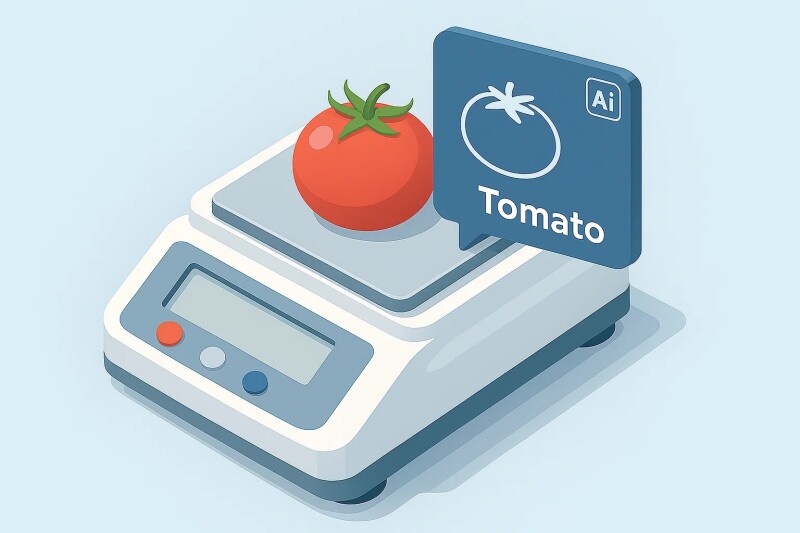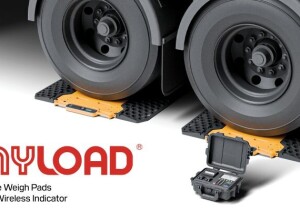[Article]: Artificial Intelligence in Weighing Processes: Smarter, Faster, More Accurate
Artificial Intelligence (AI) is transforming industrial weighing systems into intelligent platforms capable of learning, adapting, and optimizing performance in real time. From manufacturing to logistics and healthcare, AI-powered weighing offers unparalleled accuracy, efficiency, and control.
What Is AI-Driven Weighing?
AI in weighing refers to the use of machine learning algorithms and data processing models to interpret, correct, and optimize weight-related operations. This includes pattern recognition, predictive maintenance, anomaly detection, and adaptive control based on real-time conditions.
Key Benefits of AI in Weighing Systems
- Real-Time Decision Making: AI algorithms adjust weighing parameters dynamically based on product behavior, temperature, or vibration patterns.
- Higher Accuracy: Systems detect and correct micro-errors in signal drift or environmental interference, ensuring stable weight readings.
- Predictive Maintenance: AI monitors load cell performance and predicts component failures before they affect operations.
- Reduced Downtime: Automated troubleshooting and calibration reduce manual intervention and equipment idle time.
- Process Optimization: Machine learning models optimize batching, dosing, and filling based on historical trends and real-time production data.
Applications of AI in Weighing Processes
- Dosing and Filling: AI fine-tunes filling speeds based on product flow characteristics to prevent overfilling or underfilling.
- Quality Control: Intelligent systems flag weight deviations, ensuring product consistency and reducing waste.
- Logistics and Freight: Automated checkweighing detects load inconsistencies and integrates with AI-based routing systems for efficiency.
- Retail and Self-Checkout: AI verifies items against expected weights in real time, reducing fraud and improving speed.
Industries Using AI in Weighing Technology
- Food and Beverage: AI ensures precise recipe control, batch consistency, and adaptive portioning even under changing product textures or densities.
- Pharmaceutical: Critical for microdosing and traceability, AI helps meet strict regulatory and quality requirements.
- Manufacturing: Optimizes raw material usage, monitors machine performance, and improves process transparency.
- E-commerce and Logistics: AI-driven scales in fulfillment centers speed up package validation and shipping optimization.
Technologies Enabling AI in Weighing
- Edge Computing: Allows AI processing at the device level for real-time decision-making without cloud latency.
- IoT Integration: Connected sensors and load cells feed continuous data to AI systems for monitoring and analysis.
- Computer Vision: In visual weighing applications, cameras and AI work together to estimate or validate weights based on visual parameters.
- Digital Twin Models: AI builds a virtual replica of the weighing system to simulate, predict, and optimize performance over time.
AI in Home and Personal Weighing Devices
AI isn’t limited to industrial applications. Smart scales used at home integrate with mobile apps to track body composition, hydration levels, metabolic age, and more. These systems learn user trends and provide personalized health insights, diet suggestions, and fitness progress monitoring — all powered by artificial intelligence.
Challenges and Considerations
- Data Quality: AI models require clean, consistent input from sensors. Poor calibration or noisy signals can reduce effectiveness.
- Cybersecurity: As systems become connected, protecting weighing data from unauthorized access is critical.
- Integration Complexity: Retrofitting legacy systems with AI can require custom interfaces or hardware updates.
Future Outlook
- Self-Learning Weighing Systems: Future systems will continuously improve accuracy and speed through unsupervised learning.
- Autonomous Weighing Operations: Facilities will run with minimal human oversight, using AI to detect, weigh, sort, and validate products end-to-end.
- AI + Robotics: Fully integrated robotic and weighing systems will make real-time loading decisions, perform predictive actions, and improve traceability from raw material to end user.
Conclusion
AI is unlocking the full potential of weighing systems by making them adaptive, predictive, and intelligent. Whether applied in industrial automation, logistics, or personal health monitoring, AI-driven weighing offers the precision and scalability modern businesses need to stay competitive. The future of weighing is no longer just about weight — it's about intelligent action based on that data.



























Interested? Submit your enquiry using the form below:
Only available for registered users. Sign In to your account or register here.